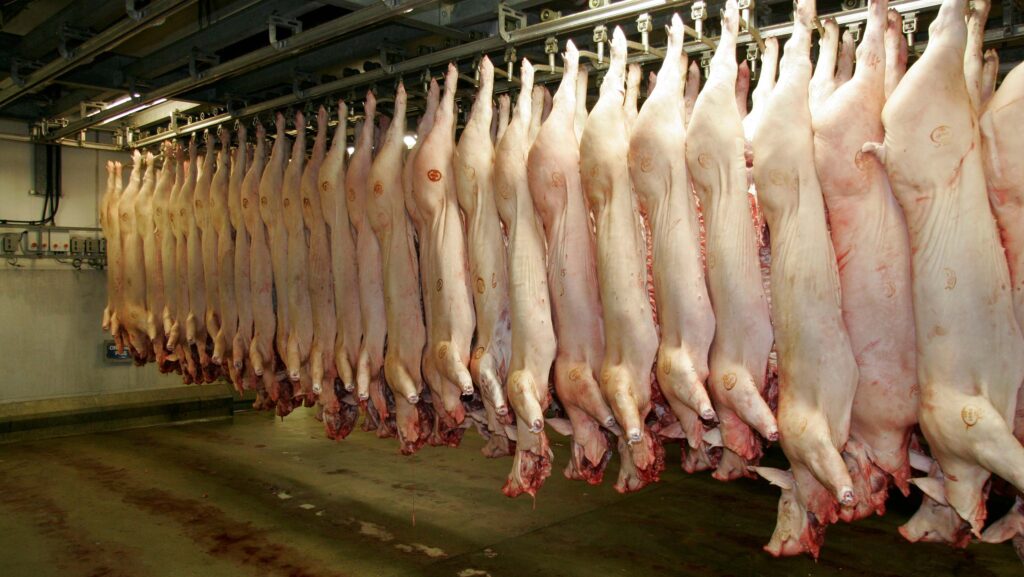Emily Lees: Farmers shouldn’t pay meat ‘middleman’ costs
 Pig carcasses hanging in a slaughterhouse
Pig carcasses hanging in a slaughterhouse With Halloween and Guy Fawkes night over, the supermarkets are brimming with tat to sell cheaply at Christmas.
Thankfully, our beef also flies off the shelves as families make stews and enjoy roasts during the winter months.
With demand for beef high, many farmers are keen to sell their stock and save on the overwintering costs.
See also: Fergus MacGregor – maintenance mistake sparks new approach
The abattoir, however, does nice work of reducing our profits.
I recently agonised over our “lot charges” – an unhappy annex to our kill sheets, which declares how much money we owe the abattoir.
It is made up of elements such as insurance, classification and inspections.
In other words, the farmer paying the middleman.
Our charges added up to £28.94 a carcass – a steep bill for them to “do their job”.
However, the charge that really gets me hot under the boilersuit is “waste disposal”.
For the better, the slaughterhouse has invented a system where every single piece of the animal is used.
From nose to hoof, and even the intestines, the workers on the line separate the bits we don’t typically find on the supermarket shelves.
These cuts go to pet food, biomass and, amazingly, to China.
And they are removed prior to the carcass grading and weighing, so farmers are not paid for the extra benefits our cattle produce.
I recently asked why we were paying for “waste disposal” at an organic farmers day, co-hosted by my abattoir and supermarket.
I didn’t get a satisfactory answer.
I don’t understand why we pay for our cattle to be “classified”, nor why our organic cull cows are not sold as organic, nor how they clarify to consumers the different qualities of meat they are purchasing.
The system is broken. Consumers are paying the same price year-round (their shelf price does not fluctuate with our beef price), and farmers are having profits eaten into.
We should be paid for meat quality and paid fairly – not have additional fees tacked on which should be covered by the middleman, not the producer.
